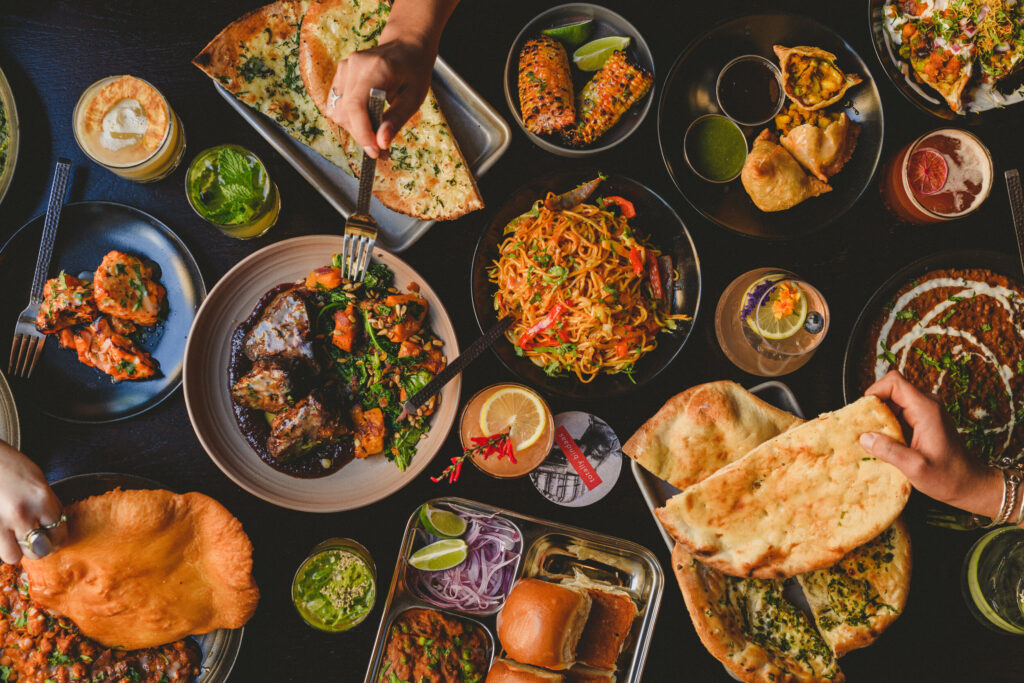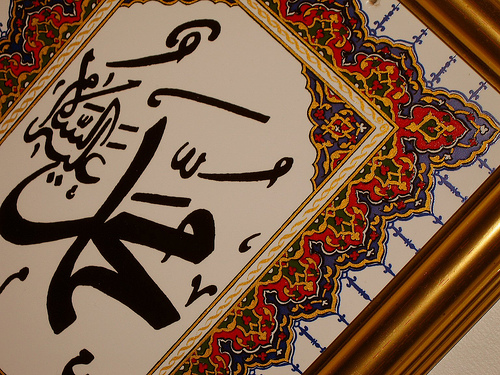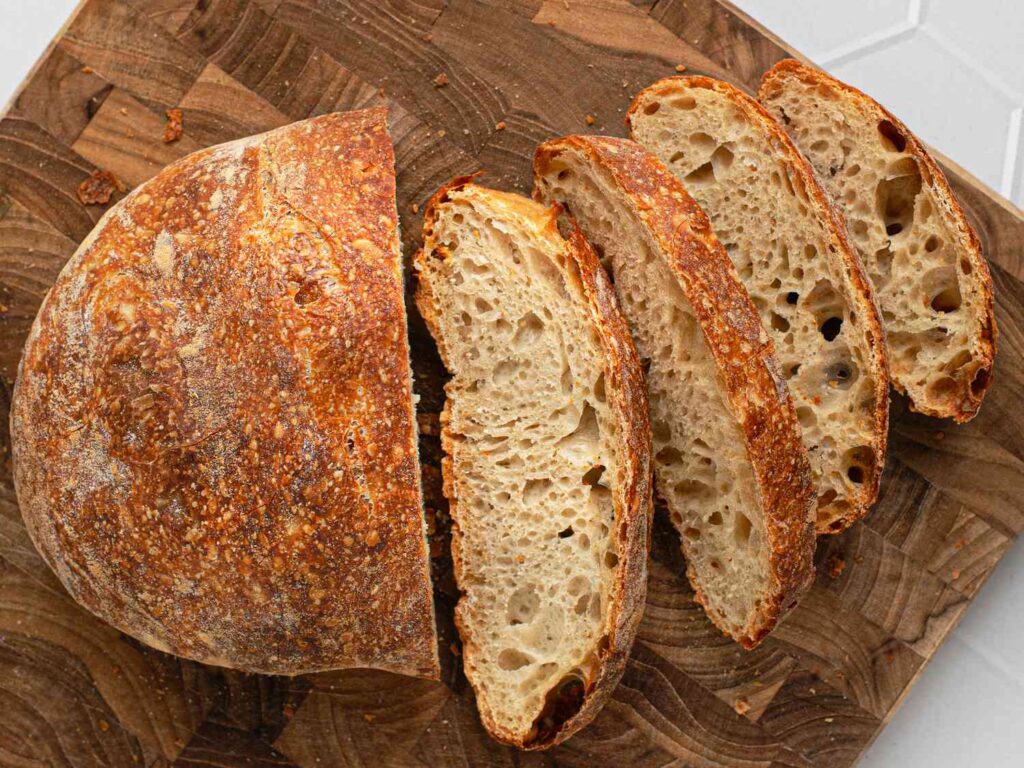
the eating of the prophet Hadith Number 1.
Ka’b bin Malik Radiyallahu ‘Anhu says: “Rasulullah Sallallahu ‘Alayhi Wasallam licked his fingers thrice (after eating)”.
Commentary
After eating it is mustahab to lick the fingers before washing the hands. According to some
authorities, due to this narration it is mustahab to lick the fingers thrice.
Mulla ‘Ali Qaari says three times is not meant here, but that three-fingers should be licked, as will be stated in another narration. Therefore, another narration of Sayyidina Kaa’b bin Maalik Radiyallahu ‘Anhu is also mentioned in this chapter.
Some commentators of the hadith say that it is a separate etiquette to lick the fingers thrice, so that it becomes completely clean, and in another narration where three fingers are mentioned, is also one of the etiquettes.
Hadith Number 2.
Abu Juhayfah Radiyallahu ‘Anhu says: “Rasulullah Sallallahu ‘Alayhi Wasallain said: ‘I do not
lean and eat”‘.
Commentary
This hadith has been discussed in a previous chapter.

Hadith Number 3.
Ka’b bin Malik Radi Allahu ‘Anhu says: “It was the noble habit of Rasulullah Sallallahu ‘Alayhi Wasallam to use three fingers whilst eating and-he also licked them”.
Commentary
It has been mentioned in some narrations that he first licked the middle finger, then the shahaadah finger, then the thumb. It was the noble habit of the master to use these three fingers.
The scientists have mentioned many benefits in this method (sequence). The first is that the licking of the fingers will run in a manner where it goes to the right.
The Sha-haadah finger will be on the right of the middle finger. The second is that the middle finger is long, therefore it will be more contaminated.
For this reason it is appropriate to begin with this finger.
Khattaabi says: ‘Some foolish people do not like to lick the fingers, and think it disgraceful, but they do not reason that the food that is on the finger is the same that they have been eating, there is nothing new on it’.
Ibn Hajar says: ‘If someone thinks of his own deed as disgraceful, it could be discussed. But to think of any act of Sayyidina Rasulullah Sallallahu ‘Alayhi Wasallasm as disgraceful, could be dangerous and may even lead to kufr (disbelief). -Jam’ul Wasaa-il.
In reality these things have a lot to do with habit. If one has a habit of something, it does not matter, and one will not even take notice of it.
This is why if one naturally feels these deeds to be disgraceful, then too one should try to form a habit of it, (and should remind one’s self that it is sunnah of prophet (Sallallahu ‘Alayhi Wasallam)).
Once when this humble servant went to Hijaz (Saudi Arabia), a few who had not been to India asked me surprisingly and with great astonishment, that we hear that there is a fruit in India known as the Mango.
We hear such disgusting things about it that it surprises us. It is put to the mouth and sucked, it is removed then put to the mouth and sucked again, It is again removed looked at, and sucked again.
They were describing it with such disgust that it seemed they were about to vomit. An Indian will not feel anything disgusting about it.
There are many such examples. One takes a spoonful of custard and puts it into the mouth, then puts the same spoon which has some saliva on it, into the plate again, eating from it a second and third time.
There are countless other instances where a person is used to a certain way and manner and does not feel the least disgusted about it
Hadith number 4

Aysha Radiyallahu ‘Anha says: “Till the demise of Rasulullah sallallahu Alayhi Wasallam, his family never ate a full stomach of bread made of barley for two consecutive days”.
Commentary
it is Possible that they may have eaten a full stomach of dates, but not of bread, where they did not eat it for two consecutive days. A question may arise, that it is evident from the ahadith that Sayidinah Rasulullah Sallalahu ‘Alayhi Wasallam gave his wives their expenses for a year.
There seems to be a contradiction between the two ahadith the scientist have explained it in
various ways. Among these, one explanation is that, in the hadith the word ‘Ahl’ (family) is extra and means that the expenses were for himself. It also shows that he did not have any other provisions.
A narration is related on this topic from Sayyiditina ‘Aayeshah Radiyallahu ‘Anha at
the end of the chapter. Some ‘ulama have explained it in this manner, that he gave his wives provision, but they also, in wanting to gain thawaab (reward), gave it away in charity.
According to this humble servant there are two other explanations that may be possible. Since it is not taken from the sayings of the great learned, it cannot be taken as an argument or proof, but can surely be assumed.
The first is that the yearly expenses were only that much, that they did not cover the
cost of continuously eating bread for two consecutive days, but of eating bread sometimes, dates sometimes, and at times remaining hungry. The second is that it may have been in the form of dates. This is not denied in this hadith but that of eating bread is.
Hadith number 5
Abu Umaamah Al-Baahili Radiyallahu ‘Anhu says: “Bread made of barley was never left over in the house of Rasulullah Sallallahu ‘Alayhi Wasallam”.
Commentary
Whenever bread made of barley was prepared, the quantity was so little that there were none left over. There was not enough to fill the stomach. Also Sayyidina Rasulullah Saliallahu ‘Alayhi Wasallam used to have many guests and the As-haabus Suffah were permanent guests of Sayyidina Rasuluilah Sallallahu ‘Alayhi Wasallam.
Hadith number 6
lbn ‘Abbaas Radiyallahu ‘Anhu reports that: “Rasulullah Sallallahu ‘Alayhi Wasallam and his
family spent many consecutive nights without food, because there would be no supper. The
bread of Rasulullah Sallallahu ‘Alayhi Wasallam was mostly made of barley”. (Sometimes bread made of wheat was also available).
Commentary
Although there were among the Sahaabah Radiyallahu ‘Anhum, a few who were wealthy,
Sayyidina Rasulullah Sallailahu ‘Alayhi Wasallam did not let anyone know, nor did his family members let anyone know, of their state.
Hadith number 7
Someone asked Sahl bin Sa’d Radiyallahu ‘Anhu
“Did Rasulullah Sallailahu ‘Alayhi Wasallam ever eat bread made of white (fine) flour?” He replied: White flour may not have come before Rasulullah Sallailahu ‘Alayhi Wasallam till his last days”.
The questioner then asked: “Did you people use sieved flour in the time of Rasulullah Sallailahu ‘Alayhi Wasallam?”
He replied: “No, it was not”.
The questioner then asked: “How was bread from barley prepared?”
(because it has more particles in it).
Sahl Radiyallahu Anhu replied: “We used to blow into the flour and the big particles flew out. The rest was made into dough”.
Hadith number 8
Anas Radiyallahu ‘Anhu reports that.. “Rasulullah Sallallahu ‘Alayhi Wasallam never ate food
from a table, nor from small plates, nor was chapaati (a type of thin bread) ever made for him.
Yunus Radiyallahu ‘Anhu says, I asked Qataadah: ‘Then on what did Rasulullah Sallallahu
‘Alayhi Wasallam put and eat his food’?’. He replied: on this leather dastarkhaan”‘.
Hadith number 9
Masruq says. “I went to ‘Aayeshah (Radiyallahu ‘Anha). She ordered’ food for me and began
saying ‘I never eat a stomachful but feel like crying, then I do cry’. Masruq asked: ‘Why do you feel like crying?’. She replied: ‘I remember that condition of Rasulullah Sallallahu ‘Alayhi
Wasallam on which he left us for the next world. I swear by Allah that, he never filled his
stomach twice in one day with meat or bread”‘.
for prophets stories visit https://sunofislam.com/prophetsofgod/
for scientific miracles articles visit www.sunofislam.com
